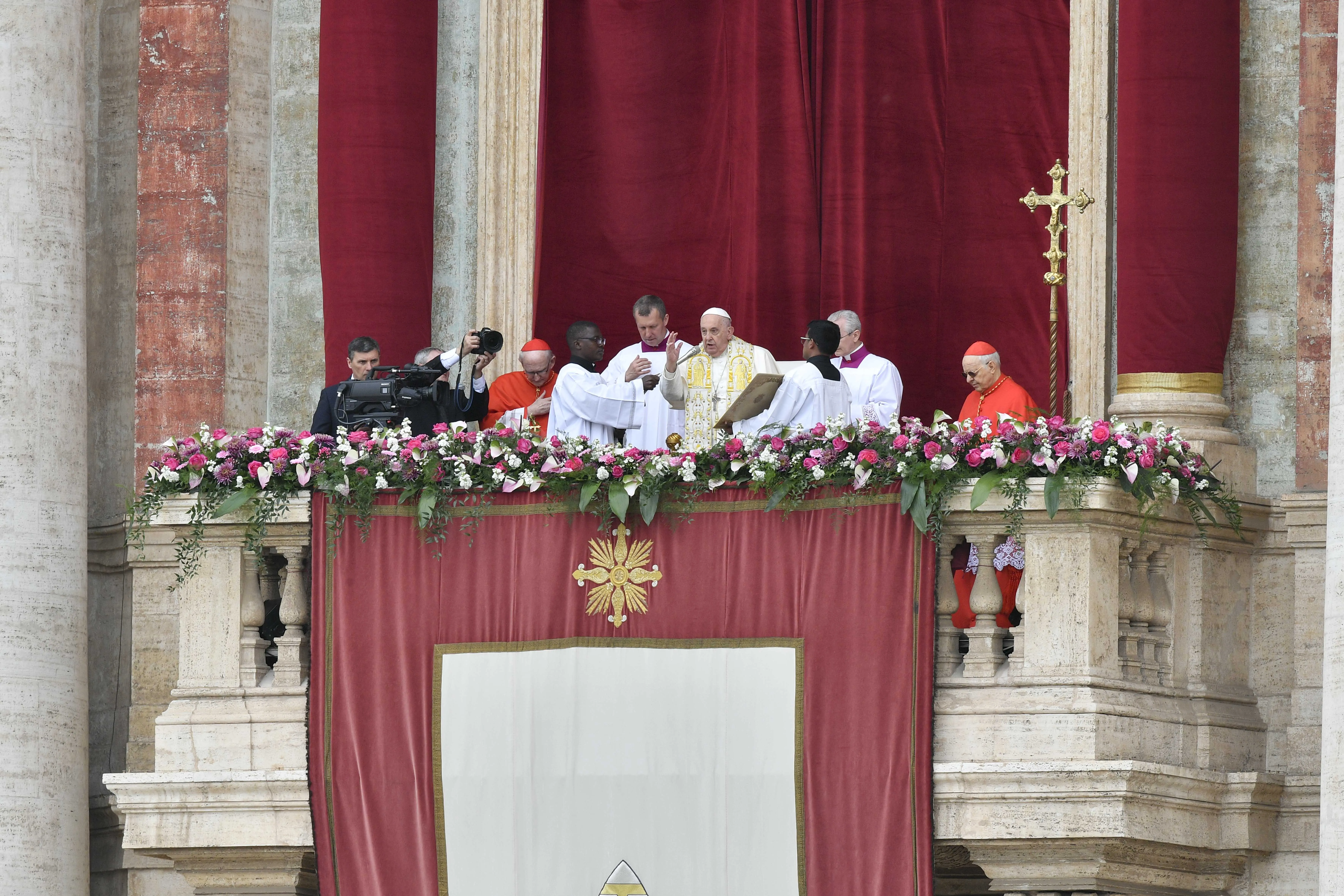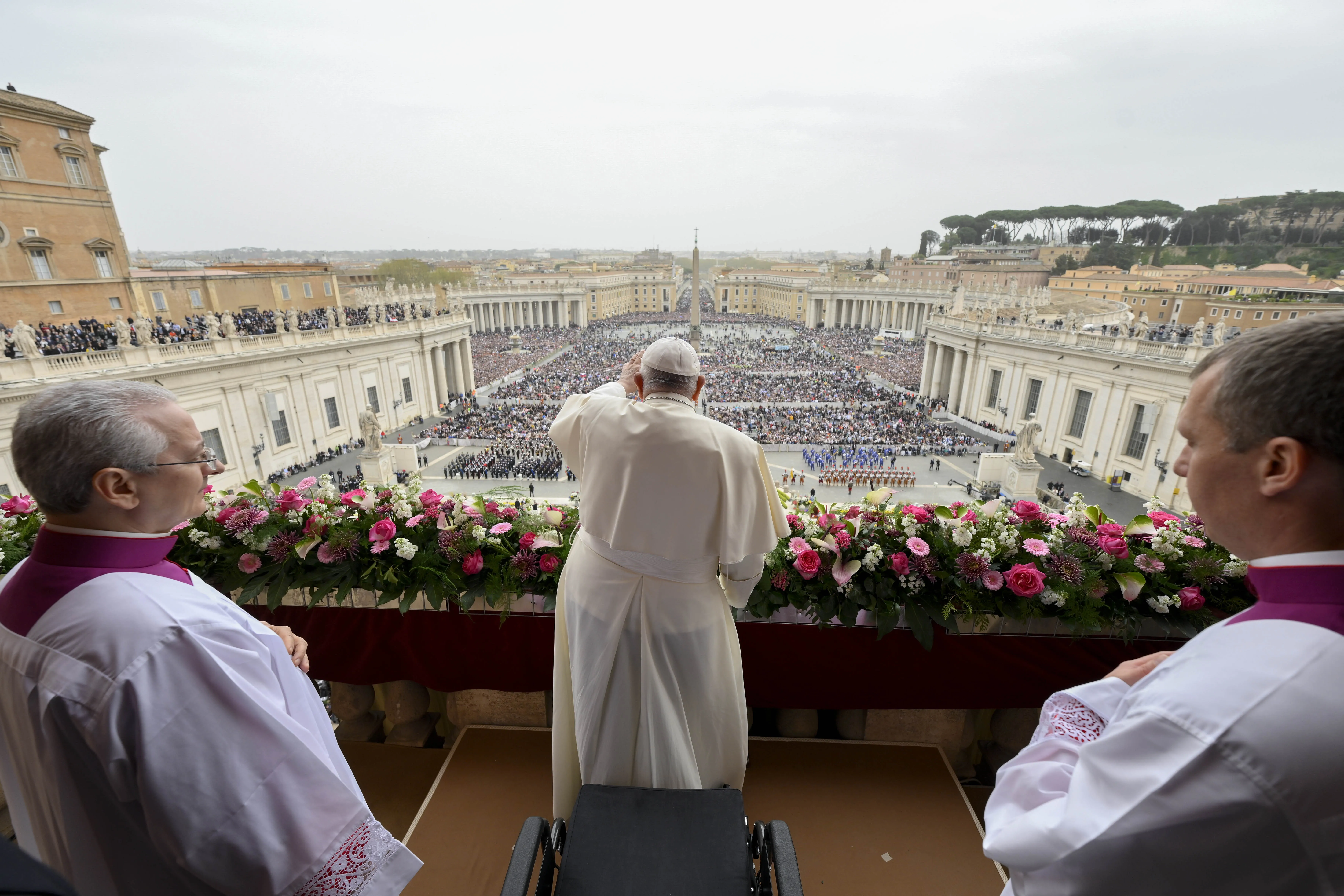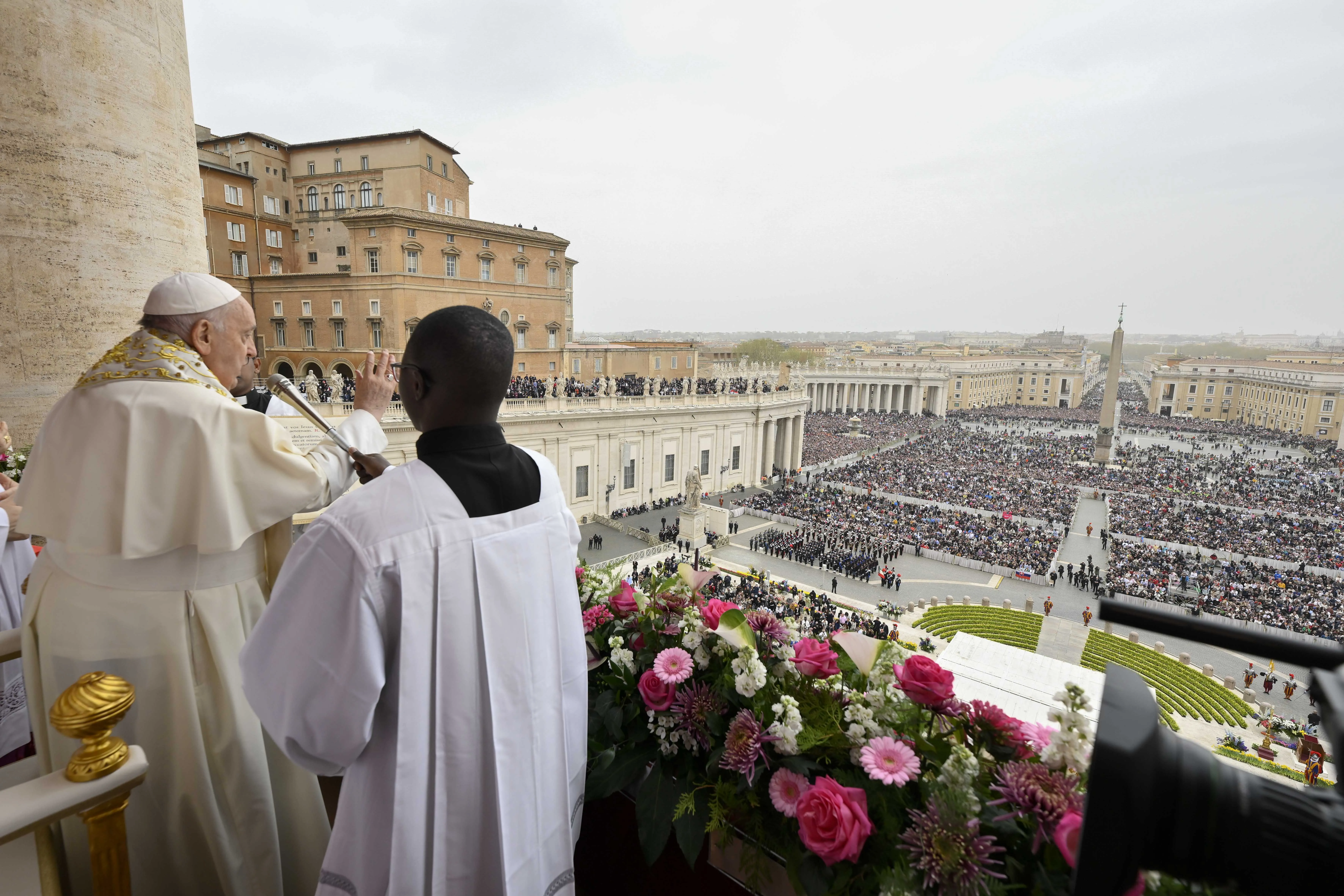
Vatican City, Mar 31, 2024 / 08:45 am (CNA).
In his Easter Sunday blessing, Pope Francis asked the risen Lord to open paths of peace in the Holy Land, Ukraine, and all regions of the world suffering from war and violence.
Speaking from the central balcony of St. Peter’s Basilica on March 31, Pope Francis called for an immediate cease-fire in the Gaza Strip. He appealed for humanitarian access for the people of Gaza and called for the prompt release of the hostages seized by Hamas on Oct. 7, 2023.
“Jesus alone opens up before us the doors of life, those doors that continually we shut with the wars spreading throughout the world,” Pope Francis said.
“Today we want, first and foremost, to turn our eyes to the Holy City of Jerusalem, that witnessed the mystery of the passion, death, and resurrection of Jesus, and to all the Christian communities of the Holy Land.”
“My thoughts go especially to the victims of the many conflicts worldwide, beginning with those in Israel and Palestine, and in Ukraine. May the risen Christ open a path of peace for the war-torn peoples of those regions.”

Pope Francis gave the traditional urbi et orbi blessing from the central loggia of St. Peter’s Basilica following Easter Sunday Mass in St. Peter’s Square in the presence of about 60,000 people.
“Urbi et orbi” means “To the city [of Rome] and to the world” and is a special apostolic blessing given by the pope every year on Easter Sunday, Christmas, and other special occasions.
Beginning with the Holy Land and Ukraine, Pope Francis prayed for the many countries in the world that are suffering from violence, poverty, instability, food insecurity, and conflicts.
“Let us not allow the current hostilities to continue to have grave repercussions on the civil population by now at the limit of its endurance,” Pope Francis said.
“How much suffering we see in the eyes of the children,” he said. “The children in those war zones have forgotten how to smile. With those eyes, they ask us: Why? Why all this death? Why all this destruction?”
“Peace is never made with arms but with outstretched hands and open hearts,” the pope added.
In his peace message, Pope Francis expressed hope for a general exchange of all prisoners between Russia and Ukraine. He also offered prayers for Syria and Lebanon whose populations continue to experience the devastating effects of war.

The pope asked the Lord to open paths of peace on the African continent, praying especially for “the suffering peoples in Sudan and in the entire region of the Sahel, in the Horn of Africa, in the region of Kivu in the Democratic Republic of the Congo, and in the province of Capo Delgado in Mozambique.”
He also prayed for the risen Lord to assist the people of Haiti, calling for “an end to the acts of violence, devastation, and bloodshed in that country, and that it can advance on the path to democracy and fraternity.”
Pope Francis encouraged the discussions taking place between Armenia and Azerbaijan, urging that with the support of the international community, they can “pursue dialogue, assist the displaced, respect the places of worship of the various religious confessions, and arrive as soon as possible at a definitive peace agreement.”
He prayed for reconciliation in Myanmar and for Christ to grant consolation and strength to the Rohingya people as they face “a grave humanitarian crisis.”
“On this day when we celebrate the life given us in the resurrection of the Son, let us remember the infinite love of God for each of us: a love that overcomes every limit and every weakness,” Pope Francis said.

“And yet how much the precious gift of life is despised! How many children cannot even be born? How many die of hunger and are deprived of essential care or are victims of abuse and violence? How many lives are made objects of trafficking for the increasing commerce in human beings?”
“May the light of the Resurrection illuminate our minds and convert our hearts, and make us aware of the value of every human life, which must be welcomed, protected, and loved. A happy Easter to all!” he said.
A plenary indulgence, or the remittance of temporal punishment due to sins that have already been forgiven, is granted to those who participate in the urbi et orbi blessing in person or through radio, television, or the internet.
The usual conditions for a plenary indulgence must be met: The individual must be in a state of grace and have complete detachment from sin. The person must also pray for the pope’s intentions and sacramentally confess their sins and receive Communion up to about 20 days before or after the indulgenced act.
If you value the news and views Catholic World Report provides, please consider donating to support our efforts. Your contribution will help us continue to make CWR available to all readers worldwide for free, without a subscription. Thank you for your generosity!
Click here for more information on donating to CWR. Click here to sign up for our newsletter.





Dying you destroyed our death. Rising you restored our lives. Lord Jesus come in Glory.